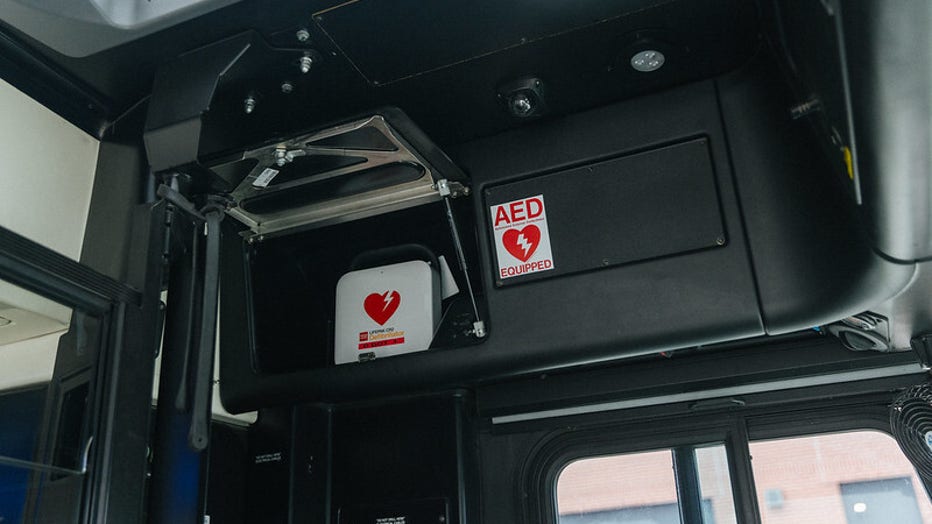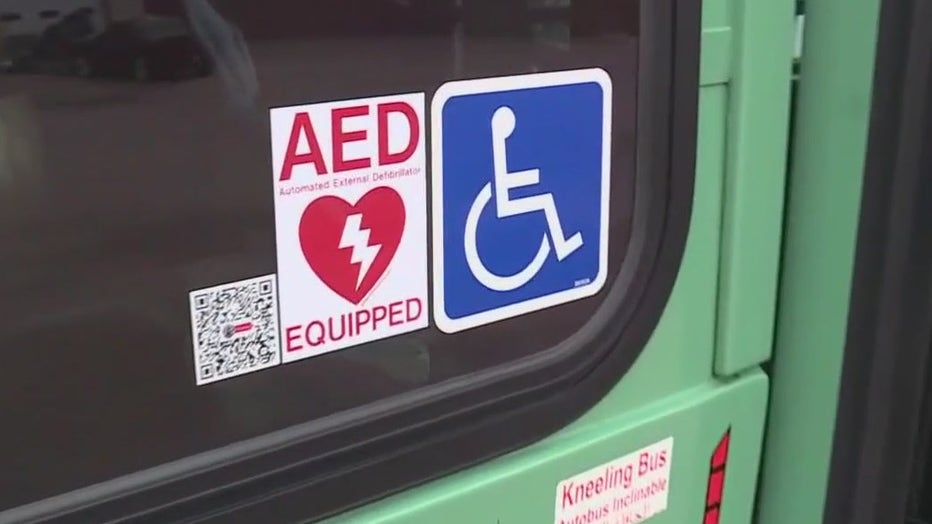DDOT workers trained in hands-only CPR, defibrillators placed on 10 city buses
Detroit Fire Department trains DDOT employees in hands-only CPR
"It meets our primary obligation not only to our employees, but also to our passengers – which is to get them safely home every night," said DDOT's interim executive director, Michael Staley.
DETROIT (FOX 2) - The Detroit Department of Transportation's (DDOT) bus drivers were taught hands-only CPR on Tuesday as part of the city's effort to become a HEARTSafe Community.
The HEARTSafe Community program "is a set of criteria and guidelines designed to improve outcomes to sudden cardiac arrest emergencies through a specific set of training, preparation and response protocols," according to the Citizen CPR Foundation.
To show commitment to residents' health and safety, the City of Detroit and the Detroit Fire Department (DFD) aim to train as many city employees and residents in hands-only CPR as possible, the city stated in a news release. Automated external defibrillators (AEDs) are also being placed at several city departments, including 10 DDOT buses starting next week.
"These AEDs were funded by the Detroit Fire Department as part of making Detroit a HEARTSafe Community and increasing the chance of survival from cardiac arrest," according to the city.
DDOT buses equipped with AEDs will have stickers indicating that the defibrillators are on board.

Select DDOT buses will have an automated external defibrillator (AED) sticker, which indicates that an AED is on board in case of a cardiac arrest emergency. (The City of Detroit)
"It meets our primary obligation not only to our employees, but also to our passengers – which is to get them safely home every night," said DDOT's interim executive director, Michael Staley. The AEDs will "provide another life-saving tool on board DDOT buses."
The campaign to become a HEARTSafe Community was launched by DFD in the summer of 2023. DDOT was one of the first departments in the city to request hands-only CPR training for its bus drivers.
"It’s something good to have as experience because you could save a life," said Marvin Bailey, a DDOT bus operator.
During the CPR lesson, DFD told bus drivers to still call 911 in case of an emergency, such as cardiac arrest – while still performing CPR.
It’s all about having the right tools, training and time.
"When a person suffers a cardiac arrest, the most important time is the few seconds right after," said DFD Executive Fire Commissioner Chuck Sims. "So if they can perform hands-only CPR on someone who has a cardiac arrest on a bus, that increases their chances of survival about 70%."

Select DDOT buses will have an automated external defibrillator (AED) sticker, which indicates that an AED is on board in case of a cardiac arrest emergency.

